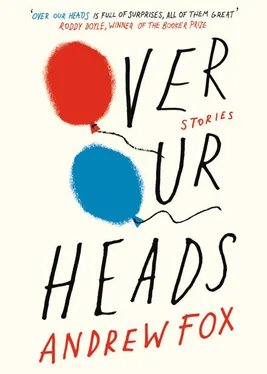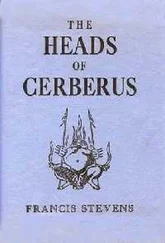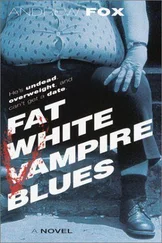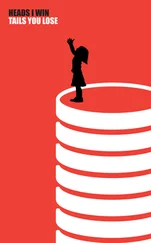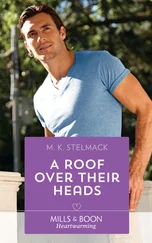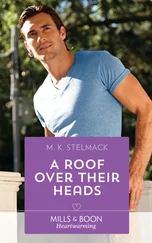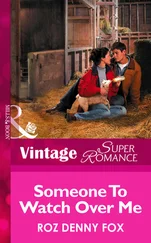I went to the front door, opened it. As I searched the empty street in both directions, my phone rang: Mona.
‘How’s Dad?’
‘He’s fine,’ I said.
‘Can I speak to him?’
Her voice was sleepy, the background loud with RTÉ radio and the sound of Colm and the kids laughing together.
‘Not right now,’ I said. ‘I’m not sure where he is.’
I could imagine my sister’s eyes shimmering the way they did whenever anger started to boil. Her top lip, I knew, was clamped between her teeth and her ears moved as she worked her jaw, the skin stretched tight at the corners of her eyes.
The third time I tried to install the star nut, I took the nut from the bag and laid it in the mouth of the steering tube, covered it with the scrap of wood and brought the hammer down. The nut went in first time. I slid a half-inch spacer over the end of the tube and bolted the stem in place, turned the Allen bolt in the top cap until I felt it catch and swivelled the stem from side to side. I lifted the front end, bounced the tyre off the ground and tried to rock the headset but it wouldn’t budge.
I bolted the handlebars to the stem, slipped on the brake levers and gear shifters and secured them all in place, greased the ends of the handlebars and slid on a new set of rubber grips, greased the bearings and threaded the axle and screwed in the bracket cups, screwed the pedals to the crankset and bolted that to the axle, hung the derailleurs, attached the new chain, hung the brake calipers and set the pads and ran all the cables through their sheaths, bolted the saddle to the seat post and coaxed that into the frame, screwed on mudguards and reflectors and a headlamp and a rear blinker.
I wheeled the bike out of the shed and climbed into the saddle. I pushed off, rolled to the back gate and slid back the bolt. A dog trotting on the cycle path inclined its head and watched me. The wind whistled through the dune grass. I didn’t move.
Through the living-room window, I watched the sky threaten rain. I turned on the TV and flipped between people making over their houses or faces. I made a cup of tea and let it go cold, peeled back the bandage to see how my thumb was healing. I ached for a cigarette. I missed my mother.
I heard the front door click, heard the scratch of Dad’s shoes on the doormat. I was up from the couch and standing next to him before he knew it.
‘You gave me a fright,’ he said, unwinding his scarf from his neck. ‘You’ll never guess who I ran into. Remember Noely Caldwell? The old fishmonger? He’s not been well, God bless him. Something with his heart.’
‘Where the hell have you been?’
Dad frowned innocently and offered a red plastic shopping bag.
‘I was talking to Noely. In his shop. I got us dinner.’
I left him in the hall and went to the kitchen to call Mona back. She was on her way out to me, she said, her voice levelled to a flat calm.
‘It’s okay,’ I told her. ‘He’s just got in the door.’
Mona’s voice shuddered and she and Colm began exchanging muffled words. I waited.
‘Look,’ she said, ‘we’re coming down tomorrow. We need to talk to both of you. It’s just … I need to talk to both of you.’
Dad took a paper parcel from the bag and unwrapped it by the sink to reveal a silver fish. He took a wooden cutting board from the cabinet and a shining cleaver from the block.
‘Don’t!’ I said, a little too loudly.
‘What?’ Mona said. ‘What’s happening?’
I cupped my hand over the mouthpiece.
‘I’ll do that in a minute,’ I told Dad, who dropped the cleaver and threw up his hands and stalked out into the garden. I stared at the door for a moment.
‘What?’ Mona said. ‘What is it?’
‘He was trying …’ I said. ‘I overreacted. He was about to butcher a fish.’
I could hear Mona’s kids again in the background and Colm closing cupboards. I kneaded my forehead against the pain behind my eyes and discovered that my hand was trembling.
‘Look,’ Mona said, ‘you’ve been very good to him. I just think that maybe now’s the time to move him. I’m sorry. I’m just so worried and so frazzled and I can’t —’
‘Easy, Mo,’ I said. ‘We’re all right. We’ll figure it out.’
‘I’m glad it’s you out there and not me. Does that make me a terrible person?’
Through the kitchen window, I could see the light go on in the shed and Dad’s silhouette moving about in there.
I washed, peeled, sliced potatoes and dropped them into a pot of water to boil. I scraped the fish’s scales, broke sprigs of dill and thyme from the herb box and chopped them, picked a lemon from the fruit bowl and cut it into discs, took salt and pepper from the spice rack and stuffed the wet pink cavity until the fish bulged at the gills. I laid it on a roasting tray and slid it into the oven.
Outside it was dark already. From beyond the back wall, I could hear the sea rolling, and through the shed window, I could see Dad standing beside the bike, one hand resting on its handlebars. As I walked the garden path, I felt moisture from bent-over grass fronds soak the ends of my jeans. I resolved to mow the lawn in the morning, unless the rain came back. I shouldered the sticking door and stepped into the shed.
‘This is my bike,’ Dad said.
He had taken off his jacket and flung it in a dusty corner. His shirtsleeves were rolled up, his top button undone to show the fraying neckline of a white vest.
‘How was the doctor?’ I said.
‘But you rebuilt it.’
Dad tried to rock the headset.
‘Yes,’ I said. ‘I did.’
‘Good. That’s good. You might have a talent for this, you know? And that’ll stand to you. A man should be able to do things.’
Dad flipped the bike over and rested it on its saddle and handlebars.
‘I’ve been working on something inside myself I’ll show you later on,’ he said. ‘But it’s a surprise for your mother, now, so don’t go telling your sister. She can’t keep a secret, that girl.’
He turned a pedal, pressed the shifter and grinned as the chain moved smoothly up and down the gears.
‘Good. That’s good,’ he said. ‘But she looks up to you, you know. When she starts in school you should take care of her.’
Dad’s shoulder blades flared through his shirt as he turned the bike over and laid it on its tyres.
‘Look,’ he said, a bead of sweat forming in the crease of his lip. ‘I know you don’t know what I’m on about now. But you’ll understand me when you’re older.’
Dad’s hand moved along the crossbar to the saddle. I took a step towards him, then a step back.
Dark clouds had followed us from Dublin to central Meath. When finally they broke on Saturday morning, neighbours telephoned Melissa’s parents with news of flooding. In the early gloaming, Ciarán and I hauled sandbags to the milking shed, and then, while he spun the Land Rover into town, Melissa and I ate a three-hour lunch with Siobhán and covered invites, footwear, cake.
‘We’d better be leaving early tomorrow if we’re going to get yous home,’ Ciarán said that night over dinner (boutonnières, placecards, flower girls’ dresses).
But on Sunday morning there was a break in the rain. I sat on the edge of the bed to tie my trainers. Melissa yawned and rolled over, baring a white shoulder. The sheets caught in the crook of her knee and tautened against her back. I bent to place a kiss at her ear and at once I felt cunning and ashamed: what I’d really wanted, when I’d packed my running gear for the weekend, was to ensure some time alone.
A bank of swollen cloud loomed over the puddled driveway. The wind had stilled and the countryside was eager and delirious. Above the blackberry bushes a swarm of greenflies hummed a crazy music. A flock of starlings burst from the telephone line and squawked at nothing. A narrow road took me under a canopy of dripping trees, to the crest of a brief hill and down into a flooded gully. I came to a stile and looked beyond it: rolling, quiet gold. I clambered over. Tongues of corn applied their slaver to my shins.
Читать дальше
